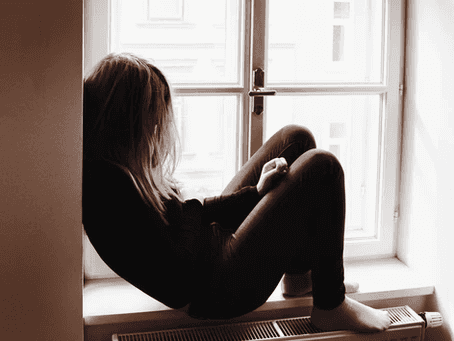
Feb 14, 2022
Lonely on Valentines Day?
Valentine's Day can be a poignant reminder of solitude, and we understand that this feeling can be especially heavy on this day. It's crucial to recognize that loneliness is a valid emotion, and it's okay to feel this way.
The commercialisation of love, otherwise known as Valentine's Day is hard to miss. The most popular time for online dating app sign-ups is the period from before Christmas to the dreaded (for some) mid-February celebration of romantic relationships. For singletons, it’s another date in the diary where a partner who is conspicuous by their absence can feel a bit bleak. But it's OK! You're definitely not alone.
10 Ways to Improve Your Single Valentine’s Day
Taking care of yourself starts with acknowledging these feelings and seeking out steps to help alleviate the loneliness both in mindset and practically.
Embrace and Love Your Singleness: The article highlights the importance of loving your single status and focusing more on its advantages than the disadvantages. Research shows that single individuals can have a greater sense of self-realisation and growth than those who are in relationships. Being happy within yourself is crucial, regardless of your relationship status. It's essential to your overall mental health and wellbeing. Avoid Societal Pressure: It’s hard to not get swept up in the hype of Valentine's day, but it Is just a day like any other. Avoid letting societal expectations dictate your feelings about being single. Potentially, rushing into a relationship before truly knowing yourself can lead to a cycle of codependency. Attend Singles Events: Explore what's happening in the single's scene. Attending singles events not only allows for fun experiences but also helps in reducing feelings of loneliness. Our advice is to go into these with the spirit of making friends not necessarily finding “the one” and you’ll enjoy yourself. Savings on Valentine's Day: Being single on Valentine's Day can save money! Redirect those savings to things that promote your well-being instead of expensive gifts. Volunteer and Donate: Helping others in need not only benefits them but is also great for your mental health. Volunteering has been linked to lower rates of depression. Appreciate the People Who Matter: Consider appreciating the important people in your life the day after Valentine's Day. This can shift focus from lacking a romantic relationship to gratitude for other valuable relationships. Avoid Self-comparison and Pity: Comparing oneself to others in relationships is harmful to your mental well-being. Acceptance, self-love, and positive affirmations reclaim your mental peace. Romantic movies, songs and specials can potentially worsen feelings of self-pity. Try alternatives like comedy, documentaries, or self-help content for a healthier mindset. Controlled Indulgences: While it's okay to set aside worries for a day of indulgence, moderation is key to avoiding future worries and maintaining good mental health. However enjoy “cheap chocolate day” the day after Valentine's Day to lighten your mood, but not your weight! Love for Exercise: After stuffing your face with reduced-price luxury chocolate, regular exercise is a proven way to elevate your mood and shake off any negative feelings and desires for a relationship. Check out this article on the mental health benefits of exercise. Value Your Own Happiness First: Being happy within yourself is crucial, regardless of your relationship status. It's essential to your overall mental health and wellbeing.
The Mental Health Impact of Valentine's Day
The impact of loneliness on mental health becomes particularly prominent during societal events, like Valentine's Day. The mental health afflictions faced by those struggling with loneliness are often magnified amidst the romantic relationships glorified in the media and advertising. Although loneliness is not categorised as a mental health problem, the feeling may heighten feelings of low self-esteem and intensify existing mental health conditions.
Valentine's Day often becomes a challenge for those grappling with loneliness, regardless of their relationship status. The instinct to compare one's personal situation to others and feel less-than can become overwhelming, but it is vital to remember that what is portrayed in public often doesn't reflect the reality of someone's personal life. Fortunately, there are several steps individuals can take to manage loneliness, such as seeking online support from communities like Mind's Side by Side, reaching out to professionals such as a GP, or utilising resources provided by local mental health services.
Importantly, loneliness is not exclusive to those who are single. Even being in a relationship does not guarantee an escape from feelings of loneliness. Misunderstandings or lack of care from a partner can be isolating and stressful. Therefore, open communication with a partner is crucial, as is support from resources like Relate, which offers assistance for relationship struggles. Prioritising mental health and extending support to others during Valentine's Day is a key part of navigating this emotionally charged time.
If you feel you need to speak to someone on the phone right now, you can call Samaritans on 116 123.
In summary, yes. Valentine’s day can be a bit depressing, particularly if you’re single but would like to find someone special. What we see online and in the media suggests that we’re the only ones without a partner. This is really not the case. A study on single Americans from 2022 shows that 47% of adults under 30 are likely to be single. The key message is to remain positive, be kind to yourself and improve mental and physical well-being. When you’re happy in yourself, the right romantic partner will come along.
By Jessica Miller
Our latest stories:
Feb 14, 2022
Lonely on Valentines Day?
Feb 12, 2022
Navigating the UK Dating App Scene: A Guide to Finding Love Online
Feb 28, 2022
Help with Loneliness in the Modern World: Coping, Combatting and Overcoming
See all posts



